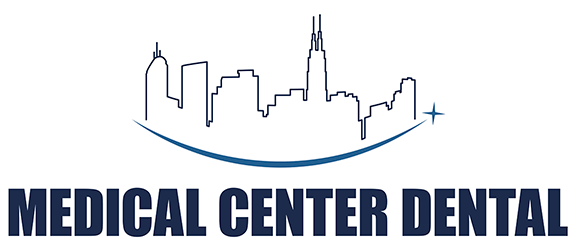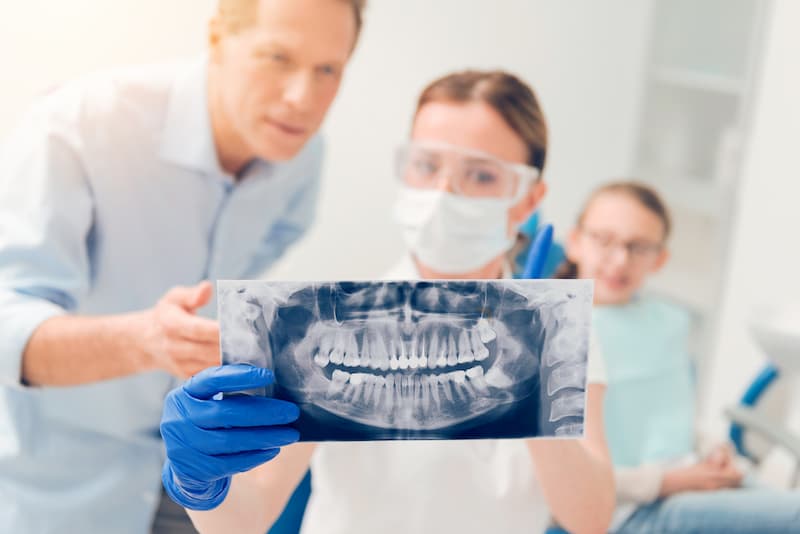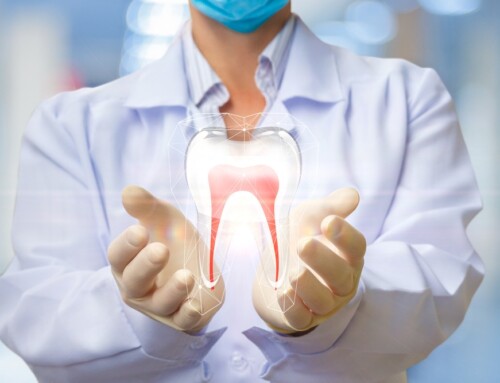Wisdom Teeth – When They Should be Pulled
Wisdom tooth extraction, though commonplace, is still somewhat a topic of controversy. Some dental professionals recommend pulling wisdom teeth for most patients, while others take a more cautious approach and only recommend extraction if problems begin to occur. Since the recommendation for pulling teeth that are not causing problems varies among dental practitioners, learning more about the symptoms that come with wisdom teeth trouble can help you decide if you want to pursue removal or leave them alone to wait and watch.
What Are Wisdom Teeth?
The teeth located far in the back of an adult’s mouth are often referred to as wisdom teeth or third molars. The second molars have no difficulty erupting for most adults, but the third molars may never erupt due to lack of space. These molars are not necessary for proper bite and do not affect chewing patterns, so if they do not erupt, it doesn’t affect your ability to eat or speak properly. For that reason, wisdom teeth are often removed to prevent future issues or to stop issues as they begin to arise.
Interestingly, wisdom teeth are considered vestigial. Some people never develop them at all. It is widely accepted that earlier humans had larger jaws and needed the extra teeth, but the jaw size adapted to a changing diet, and they were no longer needed. Unlike the other teeth in your mouth, you do not lose a baby tooth version of wisdom teeth and only develop one set in your lifetime.
What Problems Can Wisdom Teeth Cause?
One of the most common issues with wisdom teeth is a partial eruption. Molars that cannot fully erupt get stuck in a position that becomes a breeding ground for bacteria and is difficult to reach with a toothbrush. This overgrowth of bacteria is a problem because it can cause decay on surrounding teeth and lead to gum disease and other oral hygiene concerns.
Sometimes the wisdom teeth do not emerge at all, which can also lead to problems in the mouth. Molars that do not have room to emerge can still cause crowding in the mouth, both in nearby teeth and throughout the jaw. Successful orthodontic work can be disrupted if these teeth attempt to erupt but do not have room.
Another major concern with wisdom teeth is impaction. When the mouth does not have enough room for the teeth to erupt, they can become stuck in the jaw, sometimes turning at odd angles. The tooth could potentially attempt to erupt horizontally, leading to additional concerns. The roots do not grow normally and can damage other tooth roots. In some cases, the impacted teeth develop a cyst, abscess, or infection.
How Do Dentists Know If Wisdom Teeth Need to Be Removed?
Some dentists recommend leaving wisdom teeth alone unless symptoms occur, while others recommend removing during the teenage years to avoid impacted teeth. Dentists can see the state of teeth that have not erupted using x-rays. The x-ray films show whether the molars have developed roots, if they are turned sideways in the jaw and if they are in a good position to emerge without disrupting the rest of the teeth.
Dentists that recommend a wait-and-watch approach recommend taking no action as long as certain criteria are met.
- The teeth are healthy and whole.
- They are aligned properly and are able to erupt fully.
- The teeth do not affect the bite alignment or teeth position.
- The teeth are easily accessible for cleaning and are not causing pain, decay, or other health concerns.
Through the use of x-rays and examinations of the remainder of the teeth, dentists can often predict if wisdom teeth will be a future concern. In these cases, it may be recommended to extract them early to prevent future problems. During the teenage years and early twenties, the bones surrounding the teeth’ roots have not yet become as hard as they are in later adulthood, so the extraction procedure is also easier to perform on a younger patient.
Some patients come to the dentist already experiencing symptoms of wisdom teeth problems, and in those cases, extraction may be recommended as soon as possible.
- Frequent pain
- Damage to adjacent teeth
- Frequent infections behind the final tooth
- Development of gum disease or tooth decay, especially toward the back of the teeth
- Sinus pressure and pain from upper wisdom teeth that cannot erupt
- Development of cysts or tumors in the wisdom tooth area
- Unpleasant odor, either from decay or elevated levels of bacteria in the mouth
How Are Wisdom Teeth Removed?
The process of wisdom tooth extractions depends on the position and current condition of the teeth. If the wisdom teeth are not causing any current problems, have not yet grown strong roots, are in a good position, and are being removed as a preventive measure instead of as a solution to an already developed problem, it is possible to extract them during a small in-office procedure with minimal downtime. If the wisdom teeth are impacted, surgical intervention may be necessary for removal. This should be completed under the care of a dental surgeon in conjunction with a dentist.
Schedule an Appointment for Wisdom Teeth Analysis in Houston, TX
The decision to remove wisdom teeth should only be made after consultation with an experienced dentist. Since some dentists prefer a wait-and-watch approach to extraction while others prefer to be proactive and remove them while a patient is in the late teens, it is important to ask any questions you have about the process and the necessity of removal upfront before you proceed.
If you have any questions about wisdom teeth extraction or any other dental health issues, the Medical Center Dental team can assist you with any of your dental needs in Houston, TX. Contact Ingenious Dentistry for more information. You can also reach us by phone at (713) 795-5905.
_______
Image Credit: Getty/ Zinkevych






